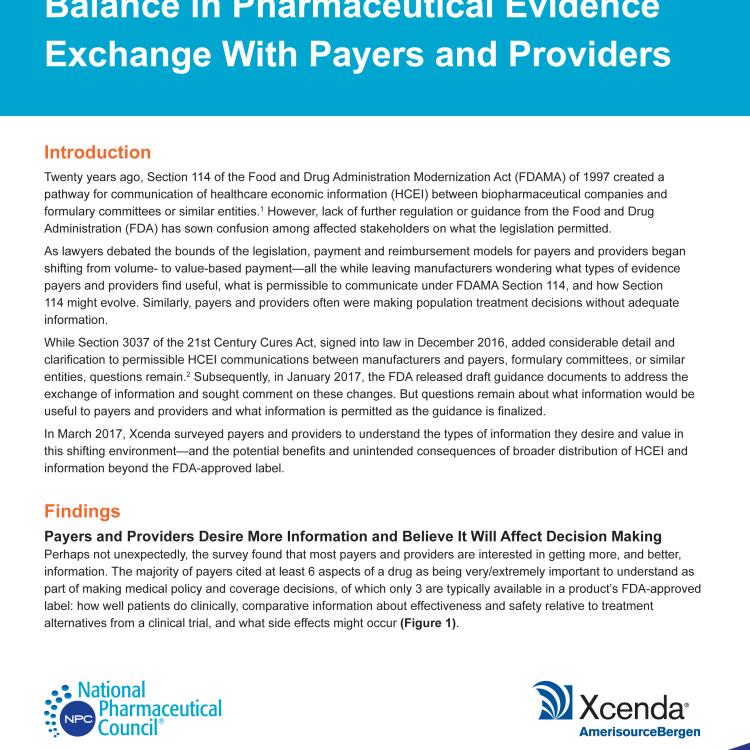Authors: Xcenda/AmerisourceBergen and the National Pharmaceutical Council
Publication: August 2017
Download the white paper.
Payer survey results | Provider survey results
Twenty years ago, Section 114 of the Food and Drug Administration Modernization Act (FDAMA) of 1997 created a pathway for communication of health care economic information (HCEI) between biopharmaceutical companies and formulary committees or similar entities. However, lack of further regulation or guidance from the Food and Drug Administration (FDA) has sown confusion among affected stakeholders on what the legislation permitted.
Xcenda, in conjunction with the National Pharmaceutical Council, surveyed payers and providers to understand the type of information they desire and value in the current and future health care environment, as well as the potential benefits and unintended consequences with broader distribution of HCEI and information beyond the FDA-approved label.
The survey provided three key insights:
- Payers and Providers Desire More Information: Both payers and providers value having a large number of types of information available when making treatment and coverage decisions. They felt multiple kinds of information, including comparative product information on cost effectiveness, impact on quality measures, outcomes measurement, and efficiency of care, will be important in health care decision-making in the next five years. However, few of these types of information are typically available in a product’s FDA-approved label.
- Decision-Making Is Limited by Available Information: Payers felt limited by the type and quality of information available when making formulary decisions, and providers felt time and resources limited their ability to use information for making treatment decisions.
- Weighing Potential Benefits and Harms of Additional Information: Both providers and payers are optimistic that additional sources of information would lead to a number of benefits. When asked about the likelihood of potential harms, payers and providers were most worried that inadequate disclosures might occur, but the important benefits appear to outweigh the potential harms.
NPC has long been engaged in this communications issue, conducting peer-reviewed research and hosting conferences to identify illustrative examples of the challenges in exchanging certain types of information. In addition, NPC has been an active contributor in identifying good research practices for conducting observational and modeling studies, and has provided testimony and comments to the FDA on exchanging HCEI. More recently, NPC participated in two forums hosted by the Academy of Managed Care Pharmacy that resulted in recommendations to foster the exchange of health care economic information and pre-approval information between payers and the biopharmaceutical industry.
